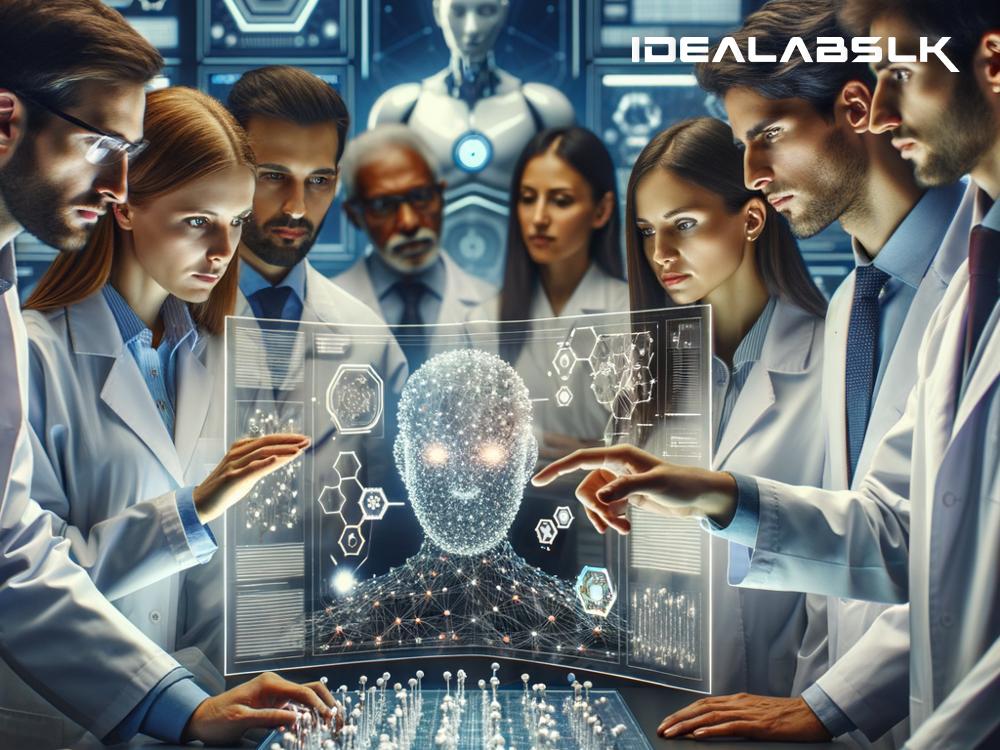In the realm of healthcare and medicine, one of the most exciting advancements of our time is the integration of Artificial Intelligence (AI) in medical research and drug discovery. With the recent surge in technological innovations, AI-powered platforms are revolutionizing the way scientists and researchers tackle complex medical challenges. In simple terms, just like a smart assistant can help us organize our day, AI is assisting in untangling the complexities of diseases, and finding effective treatments and drugs. Let's explore how AI is making waves in medical research and drug discovery, transforming what was once thought to be the far-fetched dreams of science fiction into reality.
Speeding Up the Research Process
One of the critical areas where AI is making a significant impact is in speeding up the research process. Traditionally, medical research, especially when it involved understanding diseases or developing new drugs, took years, if not decades. This is because the process involves sifting through a massive amount of data, running numerous tests, and undergoing multiple trial phases. AI, with its ability to process and analyze vast amounts of data quickly, is shortening this timeline dramatically. AI algorithms can go through thousands of research papers, clinical trial reports, and patient data in a fraction of the time it would take humans. This expedited process means potential treatments can reach clinical trial stages much sooner.
Enhancing Drug Discovery and Development
The journey of developing a new drug, from the initial discovery phase to it reaching the market, is a complicated and costly one. AI is playing a transformative role in this arena by enhancing the drug discovery and development process. Through the use of sophisticated machine learning models, AI can predict how different chemical compounds will behave and how likely they are to make an effective drug. This predictive ability is crucial as it allows researchers to focus on the most promising compounds, saving a considerable amount of time and resources. AI platforms can also identify potential side effects early in the drug development process, ensuring safer drugs are produced.
Personalized Medicine
AI is ushering in the era of personalized medicine - where treatments and medications are tailored to the individual characteristics of each patient. By analyzing genetic data, lifestyle factors, and other personal health information, AI algorithms can identify the most effective treatments for an individual's specific condition. This not only increases the efficacy of treatments but also minimizes potential side effects. Personalized medicine represents a significant shift from the one-size-fits-all approach, potentially improving outcomes for patients with complex or rare diseases.
Predictive Analytics in Epidemics
In the face of global health crises like the COVID-19 pandemic, AI has proven to be an invaluable tool in predictive analytics. By analyzing data from various sources, AI models can predict how an epidemic is likely to spread, who is most at risk, and how effective different intervention strategies might be. This information is critical for public health officials and governments in making informed decisions to protect their populations. Furthermore, AI is being used to monitor and predict the emergence of new infectious diseases, providing an early warning system that could help prevent future pandemics.
Challenges and Ethical Considerations
While the potential of AI in medical research and drug discovery is immense, there are also significant challenges and ethical considerations. The accuracy of AI predictions depends largely on the quality of the data it is trained on, raising concerns about data privacy and the risk of bias. Additionally, as AI systems play a more prominent role in decision-making, the question of accountability in the case of errors becomes more pressing. Ensuring transparency and maintaining human oversight is crucial to address these issues responsibly.
Conclusion
The integration of AI into medical research and drug discovery is transforming the landscape of healthcare. By accelerating research processes, enhancing drug development, enabling personalized medicine, and improving predictive analytics in epidemics, AI is opening up new possibilities for treating and understanding complex diseases. Despite the challenges and ethical concerns, the potential benefits of AI in healthcare are undeniable. As technology continues to evolve, the collaboration between AI and medical science holds the promise of a healthier future for all.

